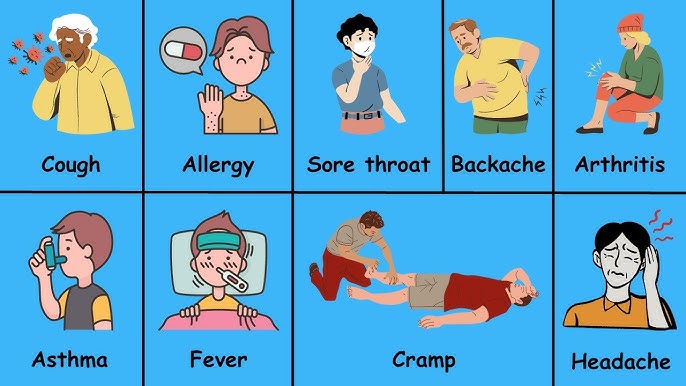Common Health Conditions A Brief Overview
Here are some of the most common health conditions that affect people worldwide:
Cardiovascular Diseases
- Heart Disease: A broad term encompassing various conditions, including coronary artery disease, heart failure, and arrhythmias.
- Stroke: Occurs when blood supply to the brain is interrupted.
- High Blood Pressure (Hypertension): Can lead to serious health problems, including heart disease and stroke.
- High Cholesterol: Excess cholesterol in the blood can contribute to heart disease.
Respiratory Diseases
- Asthma: A chronic lung disease that inflames and narrows the airways.
- Chronic Obstructive Pulmonary Disease (COPD): A group of lung diseases that cause breathing difficulties.
- Pneumonia: A lung infection that can be caused by bacteria, viruses, or fungi.
Digestive Diseases
- Irritable Bowel Syndrome (IBS): A common disorder that affects the digestive tract.
- Ulcerative Colitis and Crohn’s Disease: Inflammatory bowel diseases that affect the lining of the digestive tract.
- Acid Reflux Disease (GERD): A condition that causes stomach acid to flow back into the esophagus.
Mental Health Conditions
- Depression: A mood disorder that can cause feelings of sadness, hopelessness, and loss of interest.
- Anxiety Disorders: A group of mental disorders characterized by excessive worry and fear.
- Bipolar Disorder: A mental illness that causes shifts in mood, energy, and activity levels.
Other Common Conditions
- Diabetes: A chronic condition that affects how the body regulates blood sugar.
- Arthritis: A group of conditions that cause joint pain and inflammation.
- Allergies: Overreactions of the immune system to allergens.
- Migraine Headaches: Severe headaches often accompanied by nausea and sensitivity to light and sound.
Prevention and Management
While not all medical conditions are preventable, adopting healthy lifestyle habits can significantly reduce your risk. These habits include:
- Healthy Diet: Eating a balanced diet rich in fruits, vegetables, and whole grains.
- Regular Exercise: Engaging in regular physical activity.
- Adequate Sleep: Getting enough quality sleep each night.
- Stress Management: Practicing relaxation techniques like meditation and yoga.
- Regular Check-ups: Scheduling regular check-ups with your healthcare provider.
If you experience any concerning symptoms, it’s important to consult with a healthcare professional for proper diagnosis and treatment.

